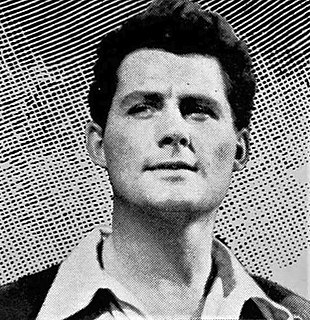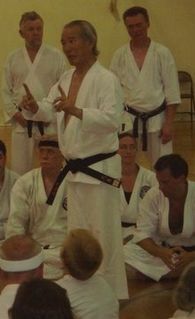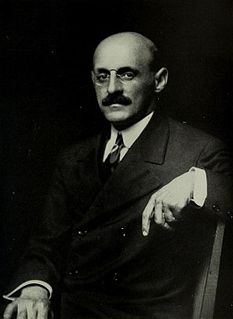A Quote by Robert Shaw
The arts are not simply skills: their concern is the intellectual, ethical, and spiritual maturity of human life. And in a time when religious and political institutions are so busy engraving images of marketable gods and candidates that they lose their vision of human dignity, the arts have become the custodians of those values which most worthily difine humanity, which most sensitively define Divinity.
Quote Topics
Related Quotes
I believe, indeed, that overemphasis on the purely intellectual attitude, often directed solely to the practical and factual, in our education, has led directly to the impairment of ethical values. I am not thinking so much of the dangers with which technical progress has directly confronted mankind, as of the stifling of mutual human considerations by a 'matter-of-fact' habit of thought which has come to lie like a killing frost upon human relations. Without 'ethical culture' there is no salvation for humanity.
The Gospel of Life is not for believers alone: it is for everyone. The issue of life and its defense and promotion is not a concern of the Christian alone. Although faith provides special light and strength, this question arises in every human conscience which seeks the truth and which cares about the future of humanity. Life certainly has a sacred and religious value, but in no way is that value a concern only of believers. The value at stake is one which every human being can grasp by the light of reason; thus it necessarily concerns everyone.
We define religion as the assumption that life has meaning. Religion, or lack of it, is shown not in some intellectual or verbal formulations but in one's total orientation to life. Religion is whatever the individual takes to be his ultimate concern. One's religious attitude is to be found at that point where he has a conviction that there are values in human existence worth living and dying for.
Curiosity, which may or may not eventuate in something useful, is probably the most outstanding characteristic of modern thinking ... Institutions of learning should be devoted to the cultivation of curiosity, and the less they are deflected by the consideration of immediacy of application, the more likely they are to contribute not only to human welfare, but to the equally important satisfaction of intellectual interest, which may indeed be said to have become the ruling passion of intellectual life in modern times.
The arts and sciences, in general, during the three or four last centuries, have had a regular course of progressive improvement. The inventions in mechanic arts, the discoveries in natural philosophy, navigation and commerce, and the advancement of civilization and humanity, have occasioned changes in the condition of the world and the human character which would have astonished the most refined nations of antiquity. A continuation of similar exertions is everyday rendering Europe more and more like one community, or single family.
More fundamental than religion is our basic human spirituality. We have a basic human disposition towards love, kindness and affection, irrespective of whether we have a religious framework or not. When we nurture this most basic human resource - when we set about cultivating those basic inner values which we all appreciate in others, then we start to live spiritually.
The Church is likewise conscious of the responsibility which all of us have for our world, for the whole of creation, which we must love and protect. There is much that we can do to benefit the poor, the needy and those who suffer, and to favour justice, promote reconciliation and build peace. But before all else we need to keep alive in our world the thirst for the absolute, and to counter the dominance of a one-dimensional vision of the human person, a vision which reduces human beings to what they produce and to what they consume: this is one of the most insidious temptations of our time.
In a revolutionary age talk of equality may well have represented a passion to provide full human dignity to those who had previously been denied it by systems of political and economic domination; but in the present age it softens the spiritual requirements that are an essential ingredient in human dignity. Thus the slogans of equality serve not so much to elevate individuals to the dignity of being human as to free them from the responsibility of rising to this vocation.
Wherefrom are human values to be derived and how are they to be developed? Human values are born along with human birth. They exist in union. Unfortunately, man today separates himself from human values and yet wants to live as a human being. To recover human values, man has to take the spiritual path.
Stabilizing the euro is one thing, healing the culture that surrounds it is another. A world in which material values are everything and spiritual values nothing is neither a stable state nor a good society. The time has come for us to recover the Judeo-Christian ethic of human dignity in the image of God.







































